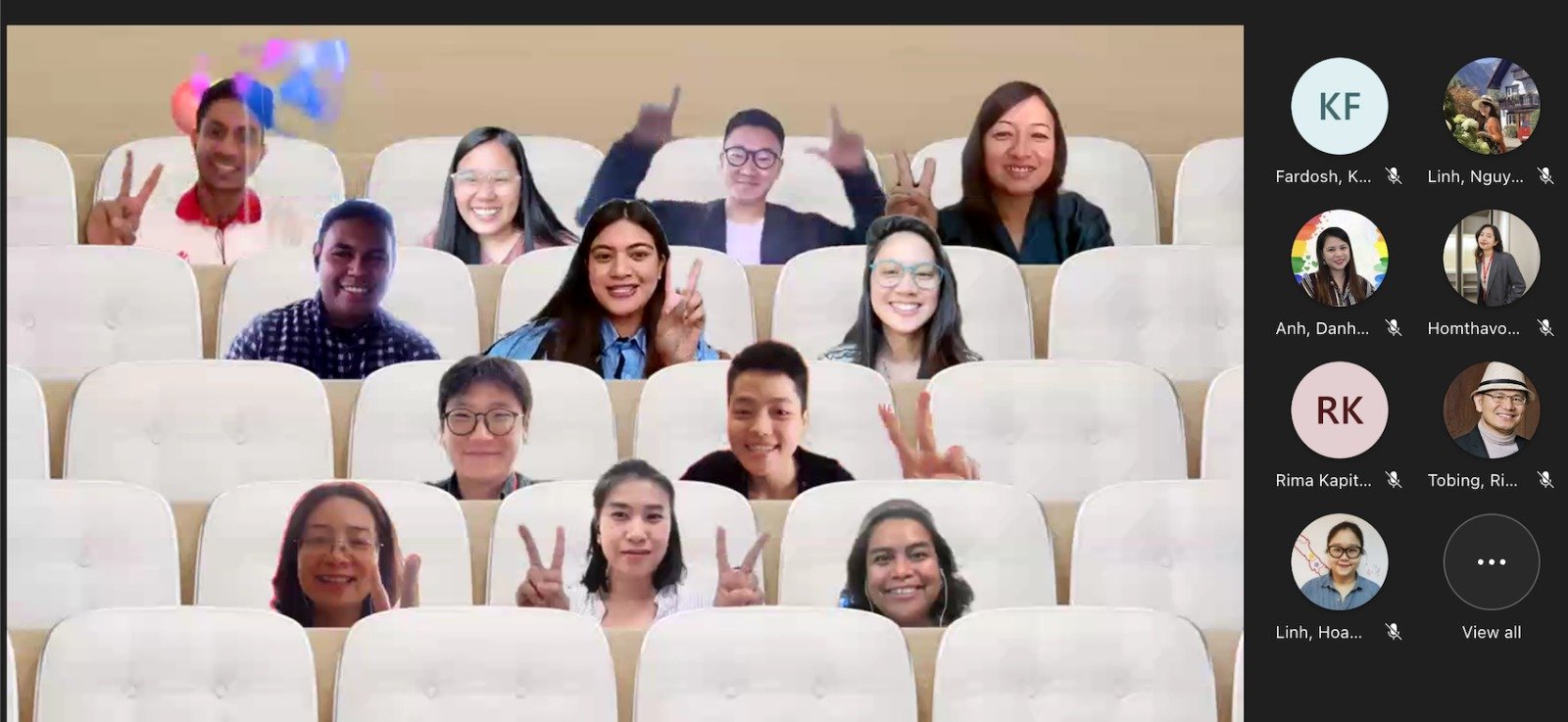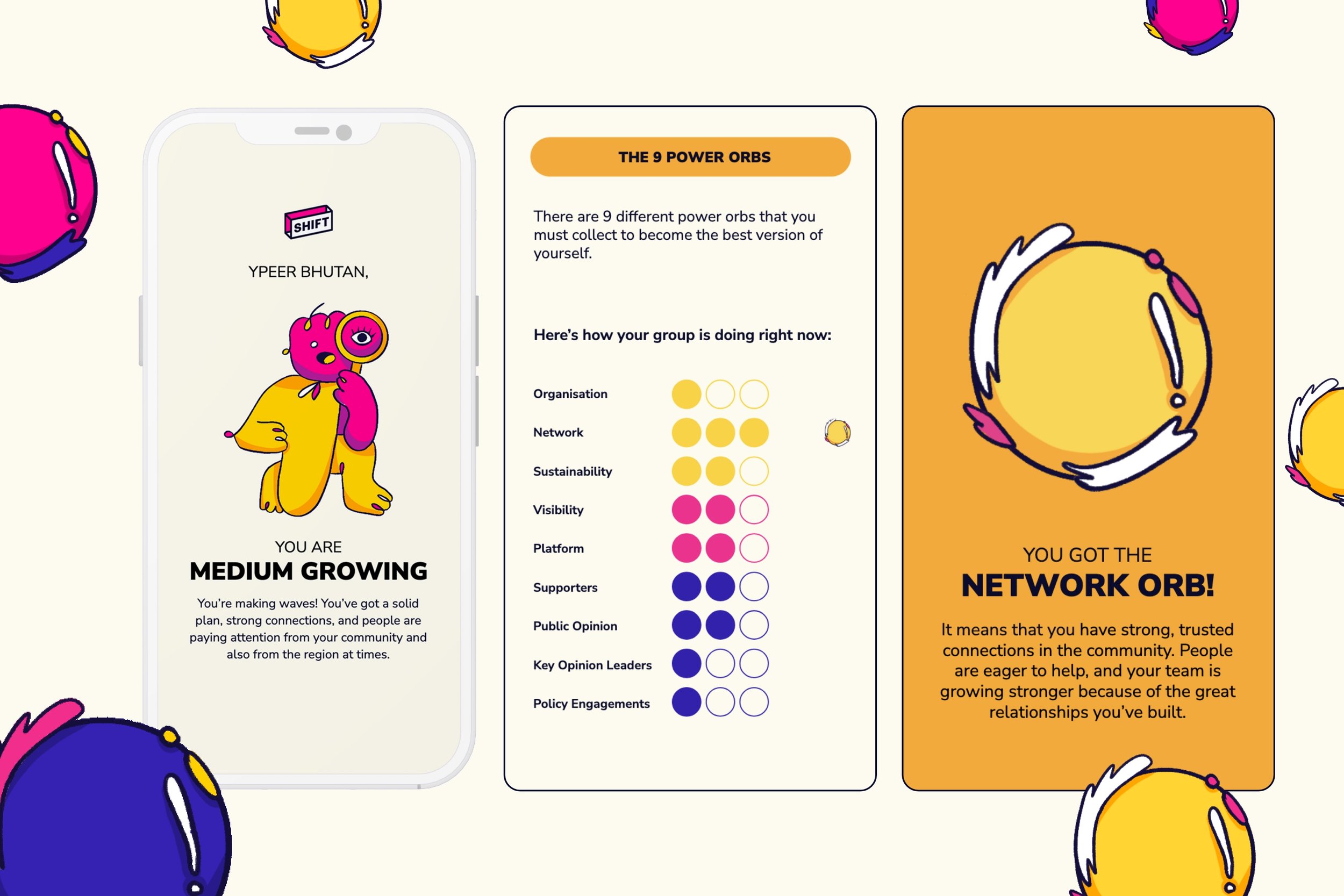Beyond Empowerment: The Strength of Peer-to-Peer Networks
One of our dreams, as we scale SHIFT around the world, has been to nurture a robust ecosystem of young changemakers who are locally grounded, but globally connected. This space would then serve as a network or platform for a meaningful exchange of ideas, inspiration, best practices and challenges.
As of 2024, SHIFT has been used by over 90 child and youth-led groups in 22 countries - and this scale has enabled us to begin our work of growing the peer-to-peer exchange globally.
As child and youth-led groups undergo the SHIFT model, they develop highly contextual and deep expertise on their ‘right-sized problem’ (an issue small enough to tackle, but big enough to matter). This includes stakeholder mapping, collaborating with leading local creatives, and developing innovative advocacy tactics that resonate deeply with their target audiences when activated. With sustained support, such groups get more ambitious in their goals and scale their impact from local to regional and district levels.
Peer-to-Peer Learning in Action
When SHIFT was first piloted in Myanmar (2019), Air Quality Yangon (AQY) - a group of students concerned with air pollution, used a mascot called Dr Air Bear to heighten awareness about the issue. The pristine white bear gradually turned muddy from the pollution in the air as AQY activated their campaign. This captured the public’s attention, which in turn influenced the Department of Meteorology to start releasing air quality data daily to the public for the first time.
In 2024 inspired by AQY’s innovative tactic, Nepalese Youth for Climate Action (NYCA) connected with AQY over a facilitated session and then set out to launch their own ‘Saathi, the Air Bear’. Their goal? To equip children and youth with the knowledge and tools to access real-time air quality data in Katmandu, which has one of the highest pollution levels in South Asia. Saathi drew immediate attention from children and youth, and NYCA used this captive audience to activate their advocacy messages. At the end of their campaign, NYCA succeeded in installing 2 air quality monitors, reached 1,125 children and youth and even submitted a Youth Declaration Paper to their Ministry of Forest & Environment.
This is where peer-to-peer exchanges become game-changers. Through SHIFT, young changemakers connect, share experiences, and inspire one another, strengthening their movements and fueling their resolve.
Sustaining Youth Movements Through Shared Support
Child and youth-led groups drive incredible change despite balancing school, family, and personal growth while tackling complex social issues. They navigate systems and policies that often overlook them, struggling for resources and recognition in a space dominated by larger institutions. Yet, they persist—innovating, mobilising, and pushing for systemic change. Staying motivated, however, is a challenge especially when progress feels slow or obstacles seem overwhelming.
Initiatives like the Monthly SHIFT Africa Catch-up calls, hosted by Chrispine Botha (our Africa Lead) and Interactive Panel-style Learning sessions hosted by Gabby (our Asia Lead) create vital spaces for young leaders to troubleshoot challenges and celebrate wins together.
THESE EXCHANGES DON'T JUST TRANSFER KNOWLEDGE; THEY BUILD SOLIDARITY, RESILIENCE, AND A SHARED SENSE OF PURPOSE.
LOOKING FORWARD: UNLEASHING THE POTENTIAL OF THE EVOLUTION TRACKER
We launched our Evolution Tracker in 2024 as a gamified approach towards assessing the health of child and youth-led movements. However, it is more than just a tool—it’s a gateway for structured, peer-to-peer learning. As more groups use it, the data generated will unlock new opportunities for targeted collaboration. By grouping changemakers based on geography, language, or shared challenges, we can facilitate exchanges that maximize collective strengths.
For example, Touna, a youth-led group from Mali, has reached Level 3: Influential in the Network category. If a group from Senegal wants to strengthen its networking skills, we can connect them for a learning session—leveraging their shared French language and regional context to make the exchange more impactful.
By scaling this model, the Evolution Tracker won’t just measure progress—it will actively shape a thriving ecosystem where young changemakers learn from and uplift one another.






